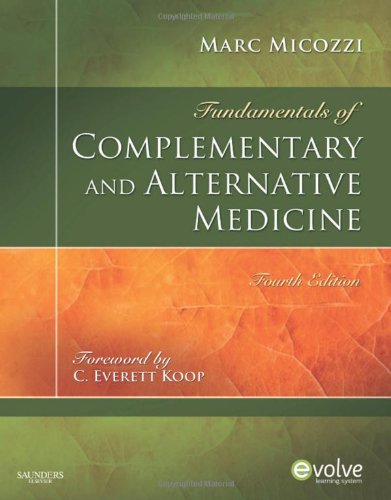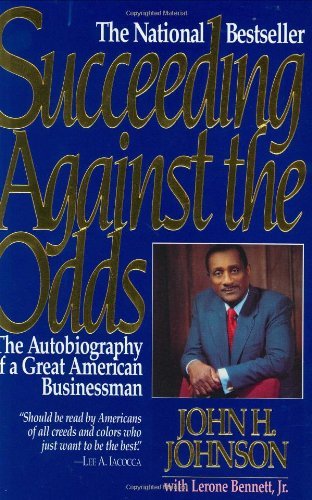Download PDF Rich Enough: What the Jesuits Have Written about Education, by Richard LaBelle
To get rid of the trouble, we now supply you the innovation to get guide Rich Enough: What The Jesuits Have Written About Education, By Richard LaBelle not in a thick published data. Yeah, checking out Rich Enough: What The Jesuits Have Written About Education, By Richard LaBelle by on-line or getting the soft-file just to check out can be among the means to do. You may not feel that reviewing a book Rich Enough: What The Jesuits Have Written About Education, By Richard LaBelle will certainly serve for you. But, in some terms, May individuals effective are those who have reading routine, included this type of this Rich Enough: What The Jesuits Have Written About Education, By Richard LaBelle

Rich Enough: What the Jesuits Have Written about Education, by Richard LaBelle

Download PDF Rich Enough: What the Jesuits Have Written about Education, by Richard LaBelle
Simply for you today! Discover your favourite book here by downloading and getting the soft file of the book Rich Enough: What The Jesuits Have Written About Education, By Richard LaBelle This is not your time to traditionally likely to the e-book establishments to acquire a publication. Below, ranges of book Rich Enough: What The Jesuits Have Written About Education, By Richard LaBelle and also collections are offered to download and install. One of them is this Rich Enough: What The Jesuits Have Written About Education, By Richard LaBelle as your favored publication. Getting this e-book Rich Enough: What The Jesuits Have Written About Education, By Richard LaBelle by on-line in this website could be recognized now by checking out the link page to download and install. It will certainly be simple. Why should be below?
As one of the window to open up the new globe, this Rich Enough: What The Jesuits Have Written About Education, By Richard LaBelle provides its remarkable writing from the author. Released in among the popular authors, this publication Rich Enough: What The Jesuits Have Written About Education, By Richard LaBelle becomes one of the most desired publications lately. Actually, guide will not matter if that Rich Enough: What The Jesuits Have Written About Education, By Richard LaBelle is a best seller or not. Every publication will certainly still give best sources to get the visitor all finest.
Nevertheless, some individuals will certainly seek for the very best vendor publication to review as the first recommendation. This is why; this Rich Enough: What The Jesuits Have Written About Education, By Richard LaBelle exists to satisfy your requirement. Some people like reading this book Rich Enough: What The Jesuits Have Written About Education, By Richard LaBelle because of this popular book, however some love this due to preferred author. Or, lots of also like reading this publication Rich Enough: What The Jesuits Have Written About Education, By Richard LaBelle considering that they actually should read this publication. It can be the one that actually love reading.
In getting this Rich Enough: What The Jesuits Have Written About Education, By Richard LaBelle, you may not constantly go by walking or riding your motors to the book establishments. Obtain the queuing, under the rainfall or hot light, and still hunt for the unidentified publication to be because book shop. By visiting this web page, you can only look for the Rich Enough: What The Jesuits Have Written About Education, By Richard LaBelle as well as you can locate it. So now, this moment is for you to go for the download web link and also purchase Rich Enough: What The Jesuits Have Written About Education, By Richard LaBelle as your personal soft documents book. You can read this book Rich Enough: What The Jesuits Have Written About Education, By Richard LaBelle in soft data only as well as wait as all yours. So, you do not have to fast put the book Rich Enough: What The Jesuits Have Written About Education, By Richard LaBelle into your bag almost everywhere.

A critical examination of Jesuit education, Rich Enough explores the genesis and history of Ignatian thinking and Christian engagement with the culture. In this timely volume, Richard LaBelle examines works rarely treated by most modern commentators, including seminal texts by such authors as Joseph de Jouvancy, Richard Tierney, Francois Charmot, and Bernard Lonergan. As Jesuit education enters the 21st century, this combination of historical scholarship and fresh insights will prove crucial to the religious educator and theologian alike.
- Sales Rank: #3334188 in Books
- Published on: 2015-03-10
- Original language: English
- Number of items: 1
- Dimensions: 9.00" h x .66" w x 6.00" l, .88 pounds
- Binding: Paperback
- 292 pages
Most helpful customer reviews
3 of 3 people found the following review helpful.
An Excellent Survey
By Stephen M. Beall
The last few decades have produced numerous books and articles on the “mission and identity” of Jesuit schools. What has been missing is a readable survey of the historical sources, including important documents before the 1970s. This deficiency has now been supplied by Richard LaBelle, a veteran lay teacher at Gonzaga Preparatory School in Spokane, Washington. In *Rich Enough*, the reader will find both an outline of the history of Jesuit education and the elements of a program for carrying the work forward.
LaBelle opens the book with a personal memoir of his experience as a student and teacher in Jesuit schools. His sense of a gradual decline in student performance and confusion in educational priorities will resonate with teachers everywhere. He proposes to trace the history of Jesuit pedagogy, with a particular focus on the apostolic aims of the Society of Jesus. The persistence of these aims in the midst of cultural change is the theme of the book. The title is taken from the *Suscipe* or Prayer of Self-offering of St. Ignatius: “Give me only the love of you and your grace, and I am rich enough….”
Subsequent chapters deal with documents from the formative years of the Society, such as the *Spiritual Exercises*, the Constitutions, the *Ratio Studiorum* (Plan of Studies) in its various drafts, and the handbook for teachers composed by Joseph Jouvancy. But LaBelle’s greatest contribution is to have filled in the gap between these foundational classics and the post-Vatican II *aggiornamento*. After the restoration of the Society in 1814, scientific courses were introduced into the curriculum, but without prejudice to its humanistic core. In fact, the Jesuits engaged in a spirited controversy with proponents of positivistic and progressive theories of education. To arm themselves for battle, they produced an impressive body of scholarship, including the seminal studies of Schwickerath, Farrell, and Charmot—works that might have been forgotten, were it not for LaBelle’s helpful summaries. Drawing from thinkers as diverse as Richard Tierney and Bernard Lonergan, LaBelle underscores the adaptability of Jesuit schools and their singleness of purpose. But things were about to change.
Vatican II invited the Jesuits to reflect more deeply on the sources of their project, and the exhortation of Pedro Arrupe might have reinvigorated the educational apostolate. But quasi-official publications such as *Profile of the Graduate* and *Ignatian Pedagogy: A Practical Approach* reflect a loss of confidence in traditional goals and methods. Although LaBelle highlights the good will and sound advice expressed in these documents, his other sources point to the conclusion that Jesuit education has broken from its theoretical moorings, to be swept along by various trends. It is especially difficult to retain the spirit of St. Ignatius where only a few teachers and administrators have been formed as Jesuits or by Jesuits. Efforts have been made, especially in the high schools, to introduce lay educators to Jesuit spirituality, but the impact of these programs is difficult to measure.
LaBelle concludes his survey on a cautiously optimistic note. There is a growing awareness among Jesuits that we need an alternative to the secular, positivistic, and materialistic tendencies of modern schools. To the extent that Jesuit educators observe the critical distinction between *plus* (more students, more subjects, more activities) and *magis* (what is more conducive to the glory of God and the benefit of human beings), they may yet be able to provide an experience that truly “satisfies and fills the soul” (*Spiritual Exercises*, Annotation 2).
Rich Enough: What the Jesuits Have Written about Education, by Richard LaBelle PDF
Rich Enough: What the Jesuits Have Written about Education, by Richard LaBelle EPub
Rich Enough: What the Jesuits Have Written about Education, by Richard LaBelle Doc
Rich Enough: What the Jesuits Have Written about Education, by Richard LaBelle iBooks
Rich Enough: What the Jesuits Have Written about Education, by Richard LaBelle rtf
Rich Enough: What the Jesuits Have Written about Education, by Richard LaBelle Mobipocket
Rich Enough: What the Jesuits Have Written about Education, by Richard LaBelle Kindle










